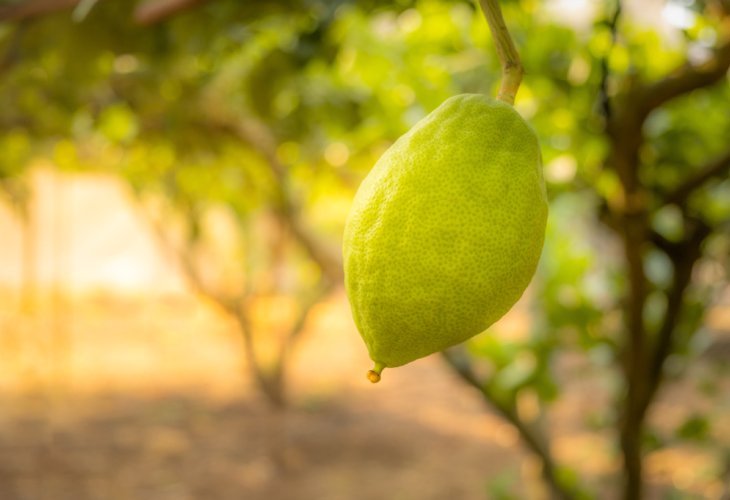Issues in the Bible
The Hidden Secret of the Etrog: How the “Fruit of the Beautiful Tree” Restores the Scent of Eden
Why the Torah never names the etrog, how its fragrance reveals the mystery of the Tree of Knowledge, and why this sacred fruit became the symbol of Sukkot and spiritual renewal
 (Photo: shutterstock)
(Photo: shutterstock)In Parshat Emor, the Torah commands us to take on Sukkot “the fruit of a beautiful tree” (pri etz hadar). That fruit, as we know, is the etrog (citron).
To fulfill this commandment, generations of Jews have cultivated etrog trees with great care — but this raises a fascinating question: why is the etrog never mentioned by name anywhere in the Torah or the Prophets?
The Etrog in Song of Songs
In Song of Songs, we read: “The fragrance of your breath is like apples” (Song of Songs 7:9).
However, Targum Yonatan translates this verse differently: “like etrogim.” Indeed, the aroma of the etrog is unique — subtle, delicate, and uplifting.
“The Fragrance of My Son”
Another possible reference appears in the story of Yitzchak blessing Yaakov. When Yitzchak says: “See, the smell of my son is like the smell of a field which the Lord has blessed” (Bereishit 27:27), the Talmud comments: “like the scent of an apple orchard.”
The Tosafot clarify: “apple orchard” here means etrog trees, not literal apples — for apple trees have little or no fragrance.
The “Apple” of the Land of Israel
Throughout Scripture, “apple” trees are described as growing in the heart of the Land of Israel — for instance, “Under the apple tree I roused you” (Song of Songs 8:5).
Real apple trees grow only in cold climates, such as northern Europe or the snowy slopes of Mount Hermon. This again suggests that “tapuach” (apple) in these verses refers not to apples, but to etrogim — whose fragrance is stimulating and awakening, fitting beautifully with the verse “Under the apple tree I awakened you.”
The etrog’s entire tree emits fragrance — not only the fruit, but also its leaves and tender branches.
The Fragrance of Eden
This idea aligns with the Sages’ interpretation of Yitzchak's words: “the field which the Lord has blessed” — this, they said, refers to the Garden of Eden.
According to Rabbi Abba of Akko, the Tree of Knowledge itself was an etrog tree. Thus, the scent of Eden — the very fragrance of divine wisdom, is the scent of the etrog.
The Etrog and the Tree of Knowledge
Eating from the Tree of Knowledge represents the awakening of human awareness. A child would never eat an etrog as it is too bitter. Only a mature person can appreciate its complex mix of sweetness and sharpness, symbolizing discernment and depth.
The Etrog in the Temple – A Return to Eden
From this perspective, it becomes profoundly meaningful that the etrog was taken in the Temple, described in Kabbalistic language as the “Field of Sacred Apples” (Chakal Tapuchin Kadishin) — a symbol of the Garden of Eden itself.
There, in the Temple, humanity could rectify the sin of the Tree of Knowledge, transforming the etrog — the fruit of both wisdom and temptation, into a vessel of holiness, beauty, and divine fragrance.

